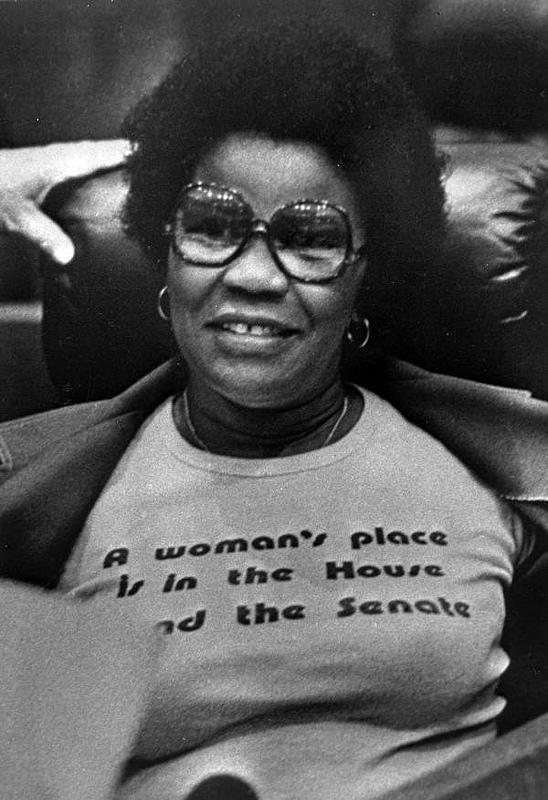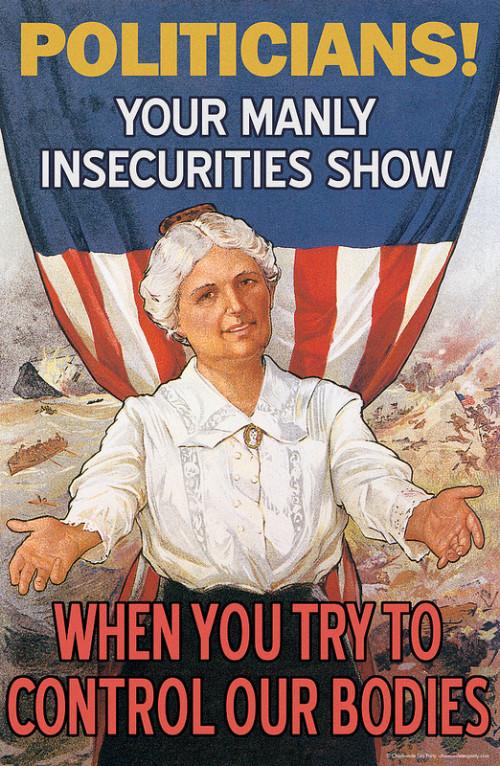Did Donald Trump Increase The Number Of Women Running For Office?

Riddle me this, dear female reader. You’re at Friday night drinks with your best gals. Everyone is gulping down a beverage to dilute their less than unenthused (or conversely, very enthused) work adventures from the past week. Then you get into IT.
Oh, you know what IT is.
IT is that topic. That one topic that lights a fire under everyone’s butt from round two to round three of the night’s drinks (and more realistically, sticks with you each day). IT is that one topic that makes everyone go, ‘yeah, we need to change that!’
Then, that customary euphemism slithers its way out of someone’s mouth, readily running the conversation to a near halt: You should run for office.
Everyone laughs. Everyone takes a drink. Everyone moves onto another conversation
So here in lies the riddle, dear reader. Why is the idea of one of you or one of your friends running for office a joke? Too young? Too inexperienced? Too female?
We are women hear us roar & see us close the #gendergap in politics! Start ur journey to public office https://t.co/GtYdTnucFx#sheshouldrunpic.twitter.com/Rv6YAJFTS2
— She Should Run (@SheShouldRun) November 14, 2016
Whatever the answer may be, according to a new article appearing in Slate this week, Donald Trump’s victory might have helped cure women of their apprehensions to get involved with political leadership.
Slate reports that since the election, there has been an outburst of interest from women “disturbed by the strident misogyny of this election cycle or troubled by the threats Trump and his appointees pose to their rights.” According to the article, organizations that have been helping women run for years, such as Ready to Run and She Should Run have seen their numbers not merely doubled or tripled, but increased by over fortyfold since the outcome of 2016’s events.
Good thing too. Despite the fact that women who run for office are just as likely to win as men, women have not been running. As a consequence, women are vastly underrepresented. Both houses of Congress can boast no more than 20% of their seats to women representatives. Though state legislators and elected state officials faire slightly better at just under 25%, overall the number of women in office nation-wide is still very low.
This is a problem because during the legislative process, as representatives choose and prioritize issues that are most important to them. Research shows that issues of particular importance to women are more likely to be introduced by women legislators than by men.
“This is something that we need. Our country desperately needs equal representation if we are going to see equity,” says Paula Phillips, a 28-year-old running for school board in Milwaukee Wisconsin.
Phillips didn’t always see herself as someone who wanted to run for political office. Yet her passions always led her to volunteer for projects that would empower inner city schools. She grew up as a first generation American, and going to public schools played an important role in her education. In college, Phillips found herself naturally gravitating toward City Year, an AmeriCorps program that works in high need urban schools. The disparity she witnessed within these school districts moved Phillips. She continued to support and volunteer with the Milwaukee public school systems thereafter.
Yet when Paula was first approached to run for the position of school board, she backed down: “Like most women, I said, ‘Oh, that was really sweet of you to ask, but no thanks.’”
Several life events, along with watching what happened during the election focused Phillips to connect with her passion: “I had to change the way I thought about it. Like a lot of women in leadership, you don’t make it about yourself. What are you connecting too?”
According to the organization She She Run, Paula Phillips isn’t the only one who has found the connection to a cause. Since the election, over 4,500 women have registered through the organization to run for an elected office.
“They[’re] … part of a fabric of voices that are wanting to be heard and wanting to make the case for smarter policy solutions,” says She Should Run co-founder Erni Loos Cutraro.
Though women face many hurdles including fundraising, networking, support and institutional sexism on the campaign trail, these organizations are helping arm women with tools they can use to successfully build campaigns, connect with their communities, and run for office.
Considering running for office? Check out the following list of organizations that can help you get started!
- She Should Run: a national network changing culture to get more women to run for office.
- Ready to Run: a national network of non-partisan campaign training programs committed to electing more women into public office.
- Emily’s List: igniting change by getting pro-choice, democratic women into office.
- NOBEL Women:a national organization to increase and promote the presence of black women in government.
- Elect Her: part of a campus leadership programs shape the lives of thousands of college women to be the next generation of leaders/
- The Victory Fund: changing the voice and face of American politics and achieving equal rights for LGBTQ Americans by increasing the number of openly LGBTQ officials at all levels of government.







